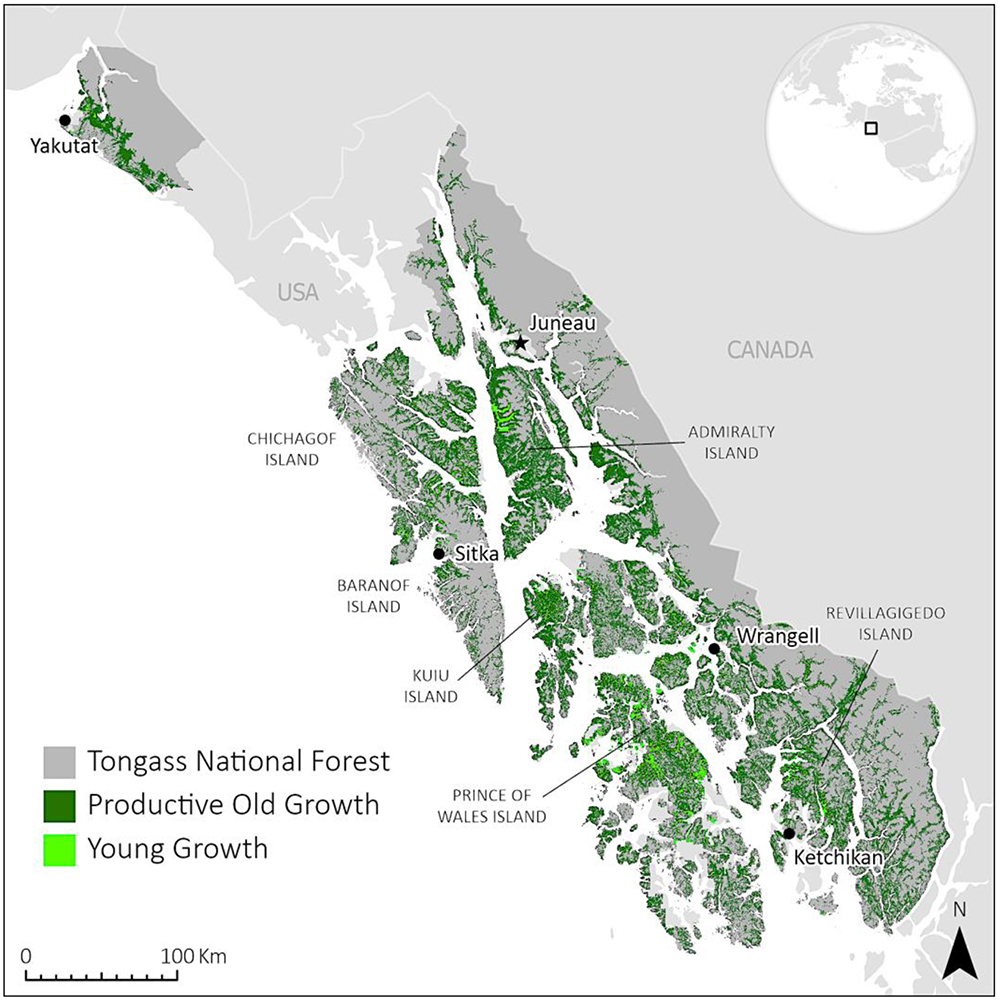
Commercial fisheries harvesters are praising a Biden administration decision reinstating the Roadless Rule for the Tongass National Forest in Southeast Alaska as an important move to protect wild salmon habitat, while Alaska’s governor criticized the decision.
“Our fisheries depend on healthy habitat and with climate change driving ocean warming, protecting habitat is increasingly important to the fish, the fisheries and the coastal fishing communities,” said Linda Behnken, executive director of the Alaska Longline Fishermen’s Association in Sitka. “This is welcome news.”
The governor called the move by the White House bad for the state’s economy.
“This decision is a huge loss for Alaskans, and it’s yet another way the Biden administration is singling out Alaska,” Gov. Mike Dunleavy said in a statement. “Alaskans deserve access to the resources that the Tongass provides—jobs, renewable energy resources and tourism, not a government plan that treats human beings within a working forest like an invasive species.”
The U.S. Department of Agriculture (USDA) on Jan. 25 finalized protections for the Tongass by repealing the 2020 Alaska Roadless Rule put in place by the previous administration. The agency said it is restoring protections to 937 million acres of roadless areas that support the ecological, economic and cultural values of Southeast Alaska.
The Tongass rainforest is home to over 73,000 people across 35 communities and directly accounts for 26% of sustainable jobs in the region, contributing $1 billion to the annual economy of Southeast Alaska. The Tongass is the homeland of 19 sovereign Indigenous nations, including the Tlingit, Haida and Tsimshian people.
The decision to protect the rainforest is directly responsive to input from tribal nations, USDA Under Secretary for Natural Resources & Environment Homer Wilkes said. The official decision was published Jan. 27 in the Federal Register.
Sen. Lisa Murkowski, R-Alaska, who grew up in Southeast Alaska, said the Roadless Rule should never have applied to the Tongass. She called the decision to reinstate the Roadless Rule “federal paternalism at its worst.”
This decision “will only serve to make it take longer, cost more, or outright impossible to develop the limited infrastructure, including renewable energy, necessary for a sustainable regional economy,” she said.
Sen. Dan Sullivan, R-Alaska, called the decision “overly burdensome” to Southeast Alaska residents. But Austin Williams, the Alaska legal and policy director for Trout Unlimited, praised the decision for refocusing management of the rainforest toward diversifying the regional economy, where tourism and fishing make up one in four jobs.
